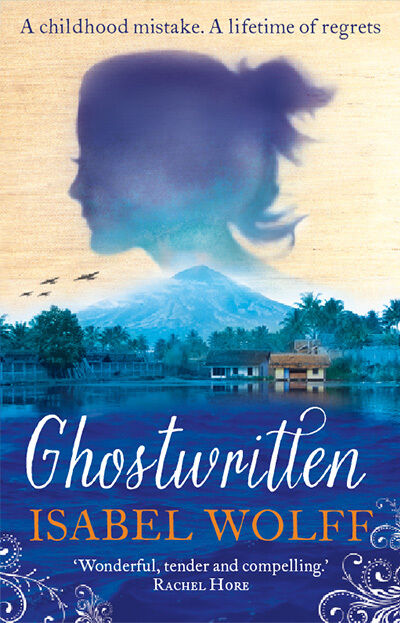Inspiration
Are you on Pinterest? I've recently started to use it and have compiled this board about 'Ghostwritten', using photos of the various locations in the novel, in Cornwall and on Java, illustrated with quotes. I hope you enjoy looking through it.
When planning my novels I always start with what the heroine does for a living, and once I knew that Jenni would be a ghost writer, I had to work out what the story that she ‘ghosts’ was going to be. I decided that it would be a wartime memoir, not of the conflict in Europe, which has been written about so much, but of the war in the East instead. I’ve always been very interested in the Pacific war. I remember, as a child, learning that my parents’ friend, Dennis, had been a POW on the Thai-Burma Railway. My mother told me, in hushed tones, that Dennis had suffered terribly and seen ‘dreadful things’, although she didn’t want to say what those things might have been. As a teenager I used to watch, avidly, the TV drama, ‘Tenko’, about a group of British and Australian women interned in a jungle camp on Sumatra. I was moved by their struggle against disease, malnutrition and the capricious cruelty of their Japanese captors. I was also fascinated by their desire to help each other but, at times, to betray each other too. And I’d read A Town Like Alice, set in occupied Malaya, a novel which has stayed with me all my life. So I decided that my ghost written story would be a memoir of internment in the Far East. I then had to think about which part of the Far East it would be, given that civilian men, women and children were interned across the region, in Singapore, the Philippines, China, Malaya and Hong Kong. I decided to set the novel in the Dutch East Indies, on Java, where the camps were most numerous. They were also, by and large, the worst.
I did a great deal of research. Firstly I interviewed two women who had both been interned on Java as children, and whose memories of the camps were still vivid, seventy years on. I went on a trip to Java. I also read the memoirs of Dutch survivors whose accounts of the appalling conditions, and the atrocious train transports made harrowing reading. So I immersed myself in their remembered world of a paradise that had become a living hell, and into this I placed my fictional characters - Klara and Peter and their parents, the Jochens, and the vengeful Mrs Dekker.
At times I felt that I was on wartime Java too. I’d close my eyes and try to imagine what it must have been like to be in a small house with perhaps fifty other people, with no possibility ever to be alone, in peace and quiet. I tried to imagine the hunger that prompted these starving women to write out recipes for delicious dishes that they would never get to eat. I tried to imagine what it would be like to have my head shaved, or to stand at Tenko, for hours at a time, with a child in my arms. What these many thousands of women endured is not widely known: I wanted to write a novel that would put their ordeal, and their courage, at its heart.
There is a contemporary story as well – of Jenni, the shy ghost writer, who prefers to immerse herself in the memories of other people, because her own memories are a source of such pain. As with ‘A Vintage Affair’, and ‘The Very Picture of You’, the friendship between the older woman and the younger woman, is key. They will help each other lay to rest the ghosts that have haunted them for so many years. Ghostwritten may seem a departure from my previous novels, but the earlier romantic comedies such as The Making of Minty Malone, Out of the Blue and Rescuing Rose have now given way to stories in which I blend present and past. This is something that began with A Vintage Affair, continued with The Very Picture of You, and Ghostwritten carries on that process of change. It’s my very great hope that you’ll find it a compelling and rewarding read.
London, March 2014




